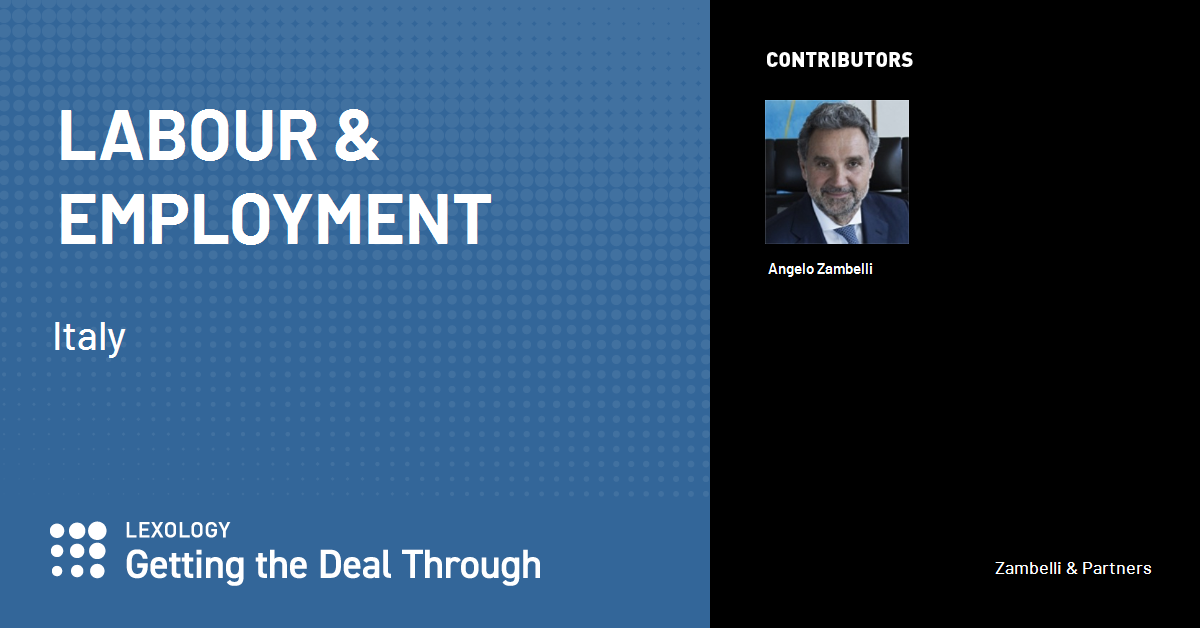Online la guida di Lexology Getting the Deal Through – Labour & Employment 2023, il capitolo sull’Italia curato da Angelo Zambelli
La pubblicazione è disponibile su Lexology.com e include il focus sull’Italia curato da Angelo Zambelli.
Riportiamo un estratto qui sotto, clicca qui per leggere l’intero capitolo su Lexology.com.
LEGISLATION AND AGENCIES
Primary and secondary legislation
Italian employment law comes from various sources, including:
- international treaties and European sources;
- the Constitution, domestic law and the Civil Code;
- collective bargaining agreements (CBAs);
- individual employment agreements; and
- customs and practices.
In Italy, as in other civil law systems, case law precedents are issued by a court according to its inner conviction, which is based upon legal provisions. Case law precedents – in particular, those issued by the Supreme Court – have a significant role in orienting both the interpretation and the application of Italian laws.
The most important labour laws are:
- Law No. 300 of 20 May 1970 (the Workers’ Statute) on the freedom and dignity of employees, the freedom of trade unions and trade union activity;
- Law No. 604 of 15 July 1966 (amended by Law No. 108 of 11 May 1990) on individual dismissals;
- Law No. 223 of 23 July 1991 on collective dismissals;
- Legislative Decree No. 151 of 26 March 2001, containing provisions on the protection of maternity and paternity;
- Legislative Decree No. 66 of 8 April 2003 (as amended by Legislative Decree No. 213 of 19 July 2004 and Law No. 133 of 6 August 2008) on working time;
- Legislative Decree No. 81 of 9 April 2008 on health and safety in the workplace;
- Law No. 92 of 28 June 2012, which regulates various issues of Italian labour law, including dismissals and the relevant procedure therefor, and many other provisions concerning employment relationships;
- Legislative Decree No. 23 of 4 March 2015, which introduced new regulations for unlawful dismissals that apply to all levels of employees – except the highest category of employee (executive-level employees) – hired permanently as of 7 March 2015; and
- Legislative Decree No. 81 of 15 June 2015, which aims to systematically regulate the different types of employment contracts (fixed-term contracts, staff leasing and apprenticeships, etc).
Many issues related to employment relationships are governed by the national CBA applied by the employer as well as by agreements that are signed with trade unions at the company level.
Clicca qui per leggere il capitolo Italia in versione integrale.




